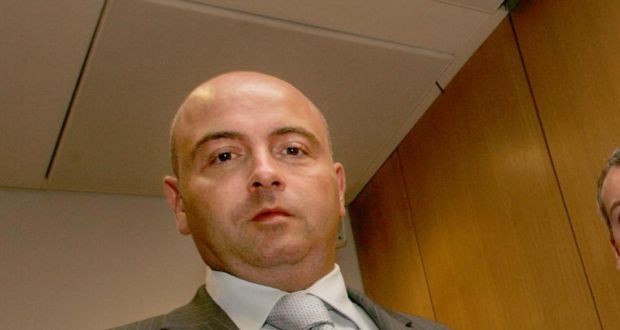A Creditor s Feast
Post on: 1 Май, 2015 No Comment

A Creditor's Feast
June 2, 2010 Riva D. Atlas
There was a small silver lining in the recent economic downturn. Vulture investors, who profit from investing in the carcasses of struggling companies, are thriving.
The wave of bankruptcies triggered by the recession has meant opportunity to these contrarian investors, who typically buy up the high-yield bonds or loans of ailing businesses. Defaults on high-yield bonds hit 10.7% last year-up sharply from 0.51% in 2007, according to Edward Altman, a professor at New York University. Vulture investors snatched up the debt of companies such as General Motors, CIT and Lehman Brothers.
Soon after these investors swarmed in to buy the battered securities, the debt suddenly soared in price. A robust recovery in the high-yield bond market in 2009, driven by investors thirsty for yield, led even the poorest-quality bonds to rally. As a result, hedge funds focused on distressed debt returned 24% last year, according to Morningstar. These funds were up another 7% in the first quarter.
Are there still opportunities for distressed funds? For many investors, the answer is yes, although they concede that the recent bond market rally has made them choosier. Other fund managers say they are biding their time for another year or two, when a spike in bond maturities is expected to provide another surge in defaults.
Right now, you need to be selective, says Martin Fridson, CEO of Fridson Investment Advisors, which manages $100 million across the credit markets. There are opportunities, but not the avalanche we saw a year or so ago.
The approach investors take to the distressed market depends on the type of assets they manage. There are hedge funds that are purely focused on distressed debt, but there are also a handful of mutual funds that offer exposure to bankrupt and troubled companies and can put as much as a quarter of their assets in the strategy. These include high-yield bond funds such as the Fidelity Capital and Income fund, the Northeast Investors Trust portfolio and the Third Avenue Focused Credit fund, and stock portfolios such as the Third Avenue Value fund and Franklin Templeton’s Mutual Series funds. By their very nature, mutual fund managers are more wary than private fund managers of investing in too many small or illiquid holdings.
Many distressed market investors are now focused on the ongoing restructuring of the U.S. banking system. Others are targeting companies too small to access the high-yield bond market. And some are buying shares of companies just emerging from bankruptcy.
If all that were not enough, vulture investors are eagerly anticipating the $1 trillion in loans and high-yield debt coming due between now and 2015, the lion’s share due between 2013 and 2015 according to J.P. Morgan. Rating agencies have been warning about the so-called maturity wall that corporations will hit when these debts come due, which could lead to a pickup in defaults.
Franklin Templeton’s Mutual Series managers are among those keeping an eye on such future maturities. The fund group, which has been investing in bankruptcies since the firm’s founding, is cautious for the moment-holding on to stakes in companies such as CIT and Realogy while it selectively invests in new situations. Mutual Series, which also invests in value equities and merger arbitrage, has 7% of its $63 billion in assets in distressed debt, down from a peak of 20% in 2003. (The Mutual Recovery Fund, with $157 million under management, generally keeps one-third of its assets in distressed debt.)

The coming maturities definitely have our attention, says Shawn Tumulty, who oversees distressed investing for the funds. A number of the bonds maturing during this period were used to finance leveraged buyouts that got done at the credit market’s peak, he says. The markets have come back, but not enough so that every issuer can refinance.
To be sure, many companies will refinance their debts well before the maturity dates-indeed, strong demand for new junk bond offerings since the beginning of 2009 had, as of the end of March, already reduced the maturity schedule for the next four years by $196 billion, or by more than 25%, according to J.P. Morgan. But investors warn that these bond refinancings, dubbed by many in the industry as extend and pretend deals because of their deferred maturities-will merely delay inevitable bankruptcies or restructurings.
For many of the companies refinancing today, the net debt position has not improved, and in fact, free cash flow has deteriorated, writes Jeff Gary, portfolio manager of the Third Avenue Focused Credit Fund, in a recent investor letter.
Companies facing an imminent liquidity squeeze are staving off bankruptcy by swapping their debt for stock. For example, Blockbuster Entertainment, the movie rental chain, is negotiating with bondholders to refinance $300 million in bonds due September 2012. Blockbuster has said it may offer shares to the bondholders. Distressed-debt investors participating in the exchange are betting that Blockbuster has a credible plan to revive its business, which has been hurt by competition from Netflix and online video offerings. The company has recently negotiated deals with movie studios that give it exclusive access to new releases for one month. But if management can’t boost profits, Blockbuster’s debt exchange could be a short-term fix.
Some vulture investors are targeting smaller, lesser known businesses unable to access the public debt markets. More than 86% of all high-yield bonds issued in the last year have been for companies looking to raise more than $300 million, according to J.P. Morgan.
The high-yield bond market right now is the tale of the haves versus the have-nots, says Michael Fineman, manager of distressed debt research for Third Avenue, a $16 billion investment firm that invests frequently in distressed securities. (Its flagship Third Avenue Value Fund currently has around 5% invested in distressed debt.) Smaller companies traditionally turn to regional banks, but those banks are overwhelmed by troubled real estate loans on their own books, he says.














